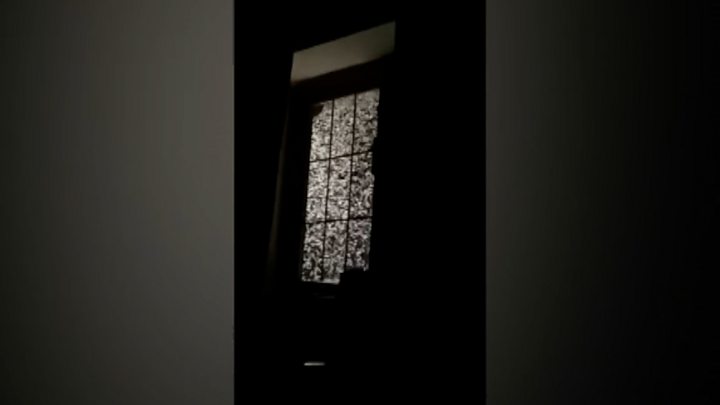'Mating midge' swarms invade Nottinghamshire villages

Villagers' homes and streets have been invaded by "disgusting" swarms of mating midges.
The problem is so bad in North Muskham, Nottinghamshire, one resident has taken to vacuuming the ceiling.
But she said the midges just "kept coming".
One university lecturer suggested a combination of unusual weather since the start of the year and the coronavirus lockdown may be causing the "large concentrations of chironomid".
The insects first appeared last month and have been seen in huge swarms in villages around Newark, including North Muskham, Kelham, and Sutton on Trent, as well as the town of Southwell.
Residents say they cannot open their windows without thousands of them invading their rooms.
Jenny Bosman said: "One evening the ceiling was covered with these little flies. We hadn't left the light on.
"They were disgusting - we were Hoovering the ceiling before going to bed at night and they just keep coming."
Her daughter Mia caught the flies on camera outside her home.
She said: "All of a sudden I saw bright lights swarming around a light.
"At the time I didn't know what it was, but in the morning I realised it must have been the flies."
Dr Chris Terrell-Nield, ecology lecturer at Nottingham Trent University, said: "Most likely they are a species of fly called the chironomid.
"At certain times of the year, they emerge - often en masse - as a sort of mating swarm."
He added: "During the lockdown period, there's less boats around, less fishing, less people and so we're getting these large concentrations now."
He also said the wet autumn and start to the year and unusually warm weather may have sped up their development.
Follow BBC East Midlands on Facebook, Twitter, or Instagram. Send your story ideas to eastmidsnews@bbc.co.uk.